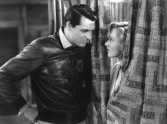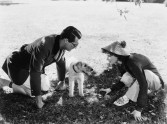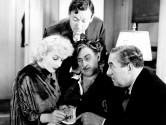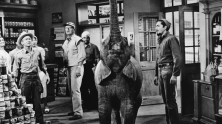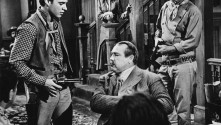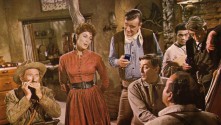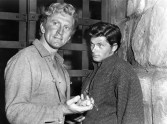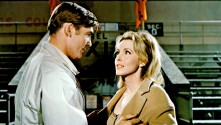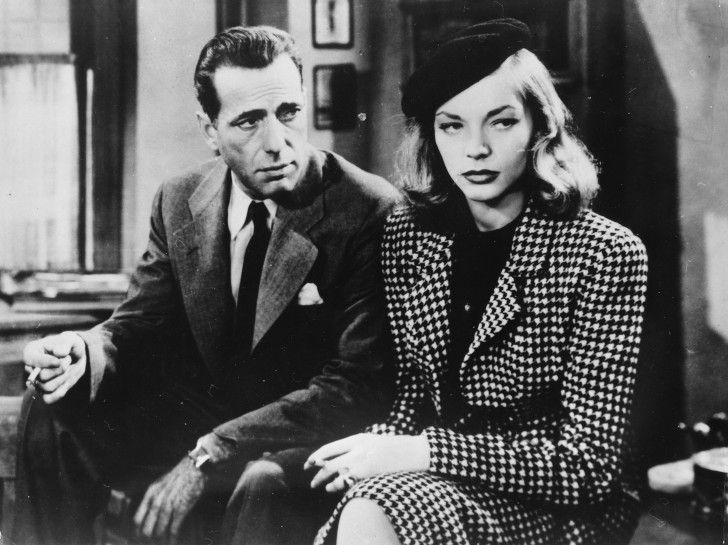
Based on a Raymond Chandler short story but finessed into its gleaming, multifaceted final form by William Faulkner, Leigh Brackett and Jules Furthman, the screenplay for The Big Sleep is one of the finest in the entire noir canon and certainly ranks in the upper echelon of the scripts Hawks worked with in his career. The reasons for this have less to do with the labyrinthine complexity of the plot—a chain of ever-expanding revelations about the haute-bourgeois Los Angeles criminal underworld—than with the layers of implication, innuendo, slang and clashing motivations in the dialogue, the rhythm of which is carefully managed by Hawks and his actors. Anchoring all of these knotty exchanges is Humphrey Bogart as private eye Philip Marlowe, master of cool and sex appeal as he sizes up his conversational opponents and seizes their intel without them even realizing it. Hired by a wealthy general to clear up a potential blackmail situation, Marlowe quickly finds himself personally invested in the case due to the recurring presence of his client’s lovely but possibly two-faced daughter (Lauren Bacall). The Big Sleep’s great trick is in seducing the audience first with the seedy plot even as it constantly redirects our attention to less analytical pleasures, like the chemistry of Bogart and Bacall and the sheer musicality of their line deliveries.
Part of film series
Screenings from this program
Gentlemen Prefer Blondes

His Girl Friday

The Big Sleep (pre-release version)

A Girl in Every Port

The Cradle Snatchers / Paid to Love

Fazil

Fig Leaves

Man's Favorite Sport?

The Crowd Roars

Today We Live


